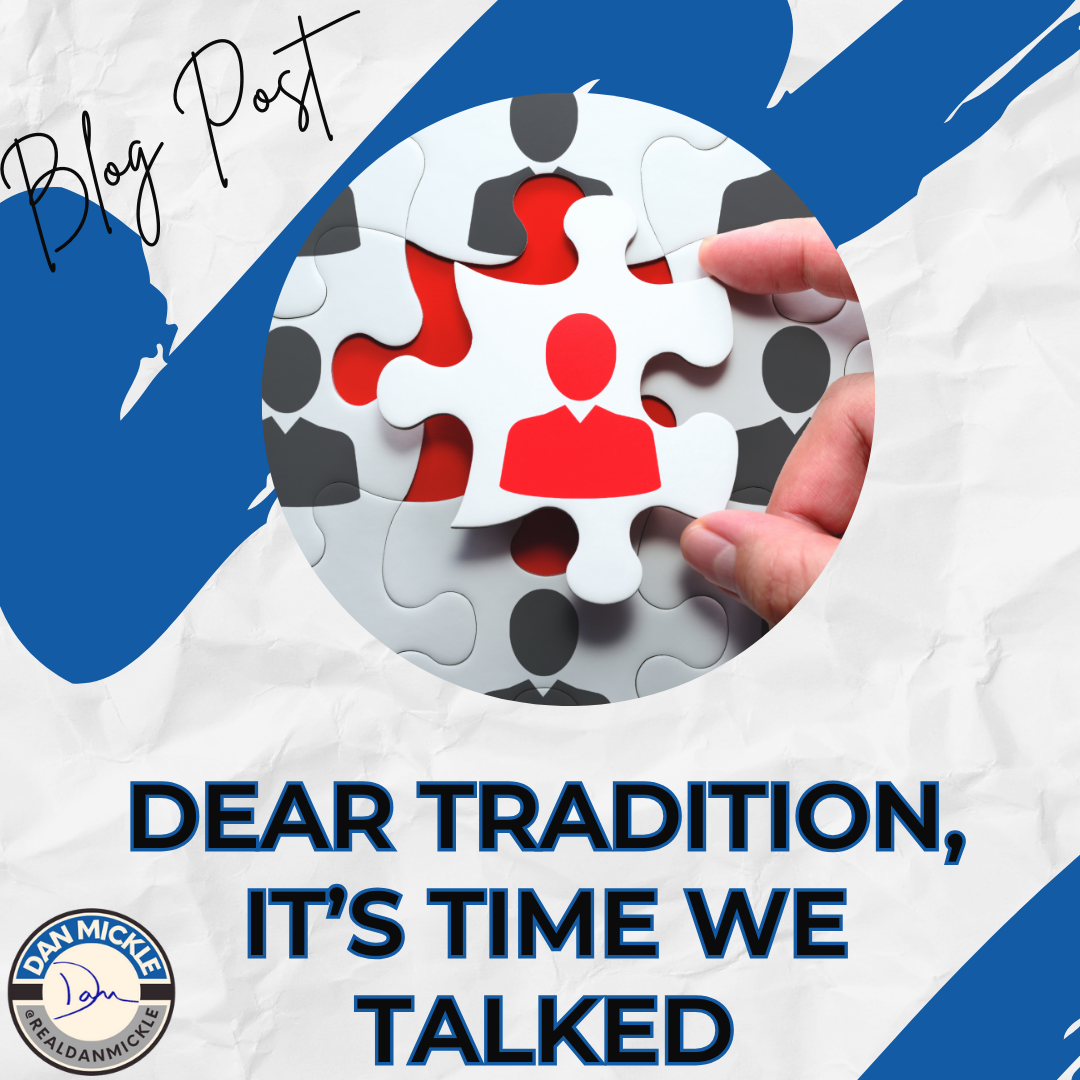There was this coach I once worked with who had a very specific whistle. Two quick tweets for water, one long tweet to circle up, and three short tweets to sprint. It was like training Pavlov’s volleyball team. No one questioned it. Not even me. Until one day, a new assistant said, “Why don’t we just talk to the players?” Cue the awkward silence, as if she had asked why we wear shoes indoors.
It got me thinking: when did tradition start becoming our answer to everything?
“Why do we do it this way?”
“Because that’s how it’s always been done.”
And boom, just like that, curiosity is squashed and growth goes back into its cage like a lion after feeding time. Tradition has this sneaky way of dressing up as wisdom. It wears a respectable hat and demands your trust. But sometimes, it’s just old habits refusing to die with dignity.
When Tradition Becomes the Ceiling
The problem isn’t tradition itself. I love a good pre-game ritual as much as the next coach. I still use the same playlist to pump myself up before speaking gigs. (Spoiler: it includes Chopin and Eminem. Don’t judge me.) But when tradition becomes the ceiling rather than the foundation, that’s when we have a problem.
I’ve seen teams run outdated plays because “Coach ran these back in ’98 when they won States.” Never mind that it was with a different team, different talent, and during the age of flip phones. Or clubs refusing to offer mental performance programs because “our kids just need to toughen up.” Right. (For more info on game traditions, check out Rethinking Timeouts.) Because that worked so well for every burned-out, bitter athlete who quit at 16.
The Trap of Tradition in Youth Sports
The truth? Some of the most revered traditions in youth sports are really just collective comfort zones. A buffer against accountability. If the drills are stale, blame the system. A player doesn’t fit, blame the player. No one questions it, it must be working, right?
Wrong.
The world has changed. Athletes have changed. Parents, coaches, and the stressors we all carry? Yup, they’ve changed too. But here we are, still acting like it’s 2003, running tryouts like a bootcamp for Marine recruits, handing out line drills as punishment, and thinking silence equals discipline.
And the kicker? We’re not even trying to be cruel. We’re just doing what we were taught. What we think works. What feels familiar. But there’s a fine line between familiar and lazy. Between tradition and fear of change.
A Better Tradition: Make Curiosity the Culture
Want a tradition worth passing down? Make curiosity your culture.
Ask the uncomfortable questions:
- Why do we do this drill?
- What do our athletes actually need right now?
- Are we preparing them for their next game or their next decade?
Break the cycle by listening more and yelling less. Replace fear-based coaching with relationship-driven leadership. Celebrate progress over perfection. That doesn’t mean we throw out every playbook from the past, but it does mean we revise them with today’s needs in mind.
Speaking of shaking things up: our Mental Performance Boot Camp running July 21–24 is designed for athletes ready to do the same. It’s a four-day online event focused on helping athletes aged 12–18 build real, usable mental skills for sport and life. Not lectures, not punishment: just growth.
Details here: https://dmick.click/bootcamp25
Tradition is Not the Enemy, But It’s Not the Answer Either
Tradition is a beautiful thing. But it should never be the reason we stop evolving. You can honor the past without letting it trap you.
So here’s to breaking whistles, rewriting routines, and maybe—just maybe—talking to our players instead of training them to decode morse code tweets.
Because growth isn’t always loud. Sometimes, it’s just a quiet question: “Is there a better way?”
And if you’re brave enough to ask it?
You’re already on the path.
TLDR; Recap:
- Tradition can help us feel grounded, but it should never be an excuse not to grow.
- Repeating what we were taught without reflection is how progress dies.
- Curiosity, feedback, and adapting to today’s athletes are the new hallmarks of great coaching.
- The Mental Performance Boot Camp (July 21–24) is designed to help young athletes develop focus, resilience, and confidence. Check it out: https://dmick.click/bootcamp25
See you in the future.
And as always: #DontSuck


